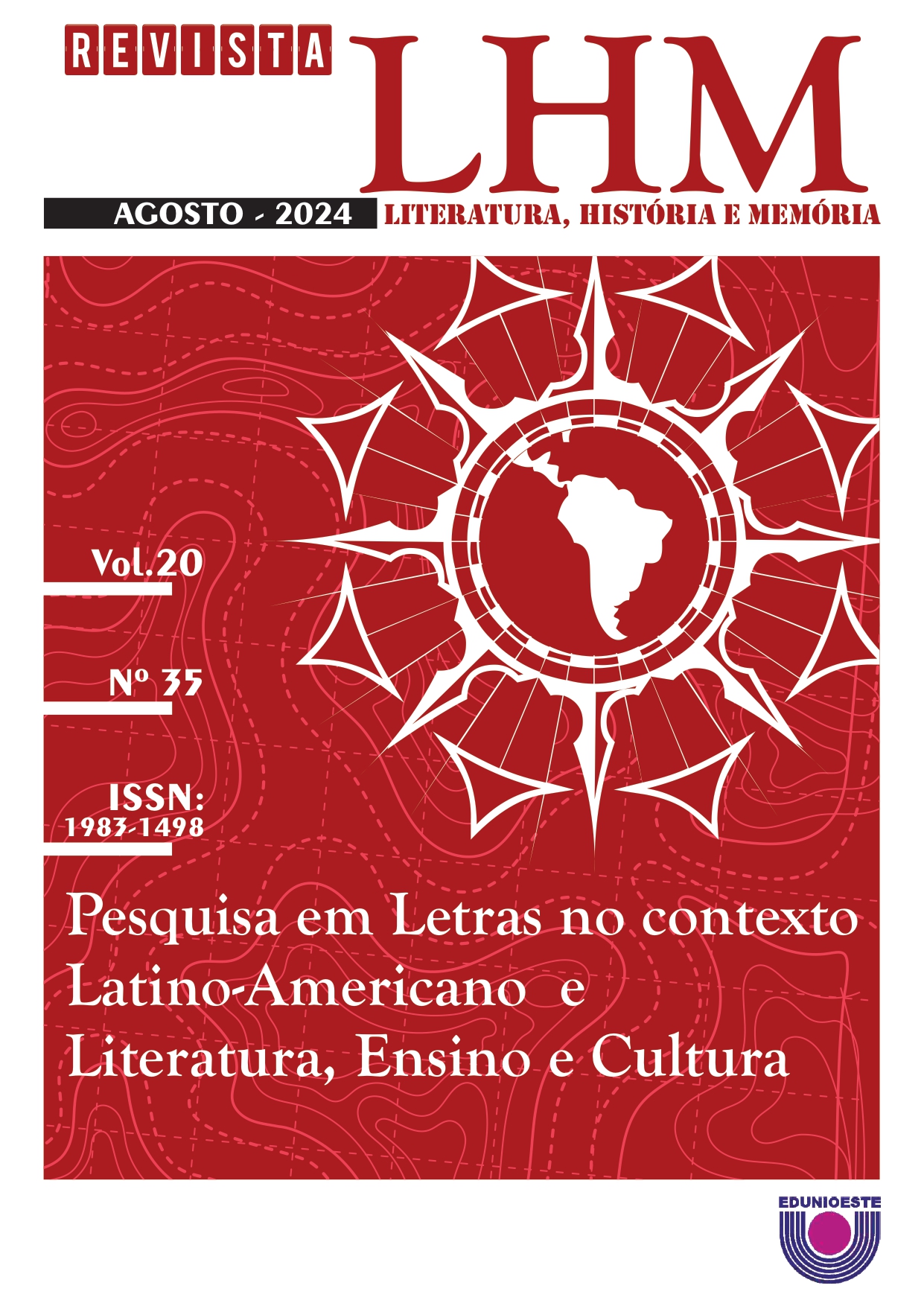Histórias apagadas pela ditadura militar
uma análise do conto "Joana", de Bernardo Kucinski
DOI:
https://doi.org/10.48075/rlhm.v20i35.31766Resumo
A Ditadura Militar ocorrida no Brasil é lembrada como um dos episódios mais marcantes no que tange à repressão, à censura e ao assassinato de inocentes do país. Nesse contexto, muitos foram os sujeitos que tiveram suas vidas apagadas, permanecendo apenas nas memórias dos que sobreviveram. Neste trabalho, realiza-se a análise do conto “Joana”, de Bernardo Kucinski, uma narrativa curta contemporânea que trata da busca de uma mulher por seu marido, vítima da Ditadura Militar no Brasil. Objetiva-se identificar os recursos estéticos adotados para representar o sofrimento de sujeitos anônimos que, de alguma forma, foram violentados durante este período ditatorial no país, além de perceber as aproximações entre literatura e História. Para sustentar a análise, são utilizados estudos de Paul Ricoeur (1997), Márcio Seligmann Silva (2003) e Linda Hutcheon (1991). Com o estudo, foi possível perceber que narrativas curtas como esta elaboram literariamente a construção de uma História que evidencia uma visão mais humana e sensível de situações vividas em contextos autoritários, dando voz a personagens e experiências anônimas, excluídas da História oficial. O conto evidencia, na sua estrutura, uma construção que se assemelha a uma História de amor, narrado linearmente por um personagem que observa, a certa distância, a dor e a resistência de uma viúva de uma vítima da Ditadura Militar brasileira.
Downloads
Publicado
Como Citar
Edição
Seção
Licença

Este trabalho está licenciado sob uma licença Creative Commons Attribution-NonCommercial-ShareAlike 4.0 International License.
Aviso de Direito Autoral Creative Commons
Política para Periódicos de Acesso Livre
Autores que publicam nesta revista concordam com os seguintes termos:
1. Autores mantém os direitos autorais e concedem à revista o direito de primeira publicação, com o trabalho simultaneamente licenciado sob a Licença Creative Commons Attribution que permite o compartilhamento do trabalho com reconhecimento da autoria e publicação inicial nesta revista.2. Autores têm autorização para assumir contratos adicionais separadamente, para distribuição não-exclusiva da versão do trabalho publicada nesta revista (ex.: publicar em repositório institucional ou como capítulo de livro), com reconhecimento de autoria e publicação inicial nesta revista.
3. Autores têm permissão e são estimulados a publicar e distribuir seu trabalho online (ex.: em repositórios institucionais ou na sua página pessoal) a qualquer ponto antes ou durante o processo editorial, já que isso pode gerar alterações produtivas, bem como aumentar o impacto e a citação do trabalho publicado (Veja O Efeito do Acesso Livre).
Licença Creative Commons
Esta obra está licenciada com uma Licença Creative Commons Atribuição-NãoComercial-CompartilhaIgual 4.0 Internacional, o que permite compartilhar, copiar, distribuir, exibir, reproduzir, a totalidade ou partes desde que não tenha objetivo comercial e sejam citados os autores e a fonte.


